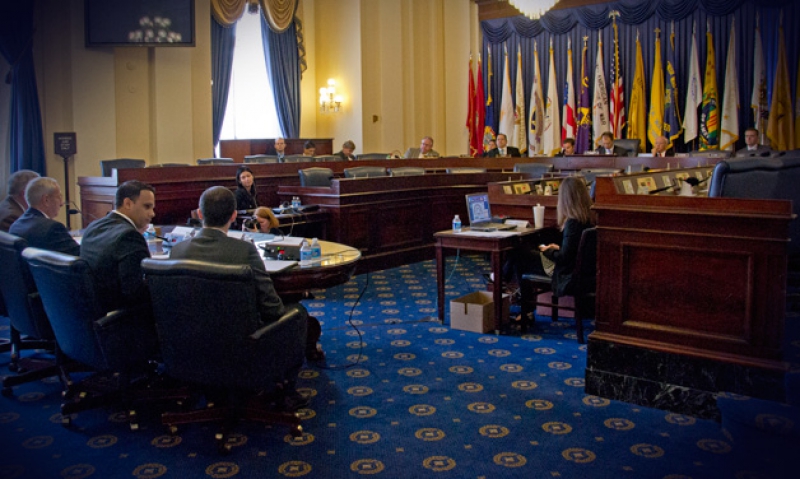
The Helping Iraq and Afghanistan Veterans Return to Employment at Home Act bill would require states to align their nursing certifications with military standards.
The American Legion testified at a June 21 House hearing in Washington, D.C., showing its support for several bills, including one measure that would require states to adjust their licensing/certification standards to accommodate military standards. Certifications for nursing assistant, certified nursing assistant, registered nurse and commercial drivers’ licenses would be affected.
H.R. 4155, the Helping Iraq and Afghanistan Veterans Return to Employment at Home Act, would remove some obstacles faced by job-seeking veterans whose military training and experience is not widely recognized by civilian agencies.
Steve Gonzalez, assistant director of the Legion’s Economic Division, presented the Legion’s testimony to the House Committee on Veterans’ Affairs Subcommittee on Economic Opportunity.
In many cases, civilian licenses and certificates require schooling that veterans have already completed through their military service. Unfortunately, most agencies that issue these documents do not recognize such training or experience. For example, a Navy medic who treated Marines with severe wounds cannot be certified as a private-sector emergency medical technician without additional — and redundant — course work.
"When civilian credentialing boards, states and employers fail to fully recognize military education, training and experience," the Legion testified, "both the servicemember and the nation are impaired. The veteran faces reduced chances of obtaining a job on part with his/her skills, and the civilian workforce cannot take full advantage of the extensive skills training in which our nation has invested."
Another Legion-supported bill discussed at the hearing, the Help Veterans Return to Work Act, would clarify the responsibilities of small businesses with respect to the employment and re-employment rights of veterans. The measure would remove "undue hardship" as a justification for large businesses to refuse to give returning veterans their jobs back. Such protections would only apply to small businesses.
The Legion testified that current law "is too lenient in allowing employers, regardless of size, to dismiss deployed servicemembers. It is estimated that nearly half of unemployed veterans are National Guard and reserve members."
The Legion testified on two other bills at the hearing that would further safeguard military homeowners and their families. They were:
-
The Military Family Home Protection Act (H.R. 5747), which would improve protections for servicemembers against mortgage foreclosures. The Legion reminded the subcommittee that the homes of military families had been foreclosed illegally before, and that servicemembers should not be "distracted by concerns over whether someone is seeking a default judgment against them back home, or evicting their spouse and children, or selling their house at an auction sale."
- The Fairness for Military Homeowners Act (H.R. 4740), which would ensure that active-duty servicemembers, relocated from their principal residence, would still be able to refinance their mortgages on those homes. "America’s servicemembers should be able to expect equal treatment as any other American homeowner when refinancing their mortgages," the Legion testified. Under current regulations, servicemembers cannot refinance their homes if they do not physically occupy them.
- Careers

